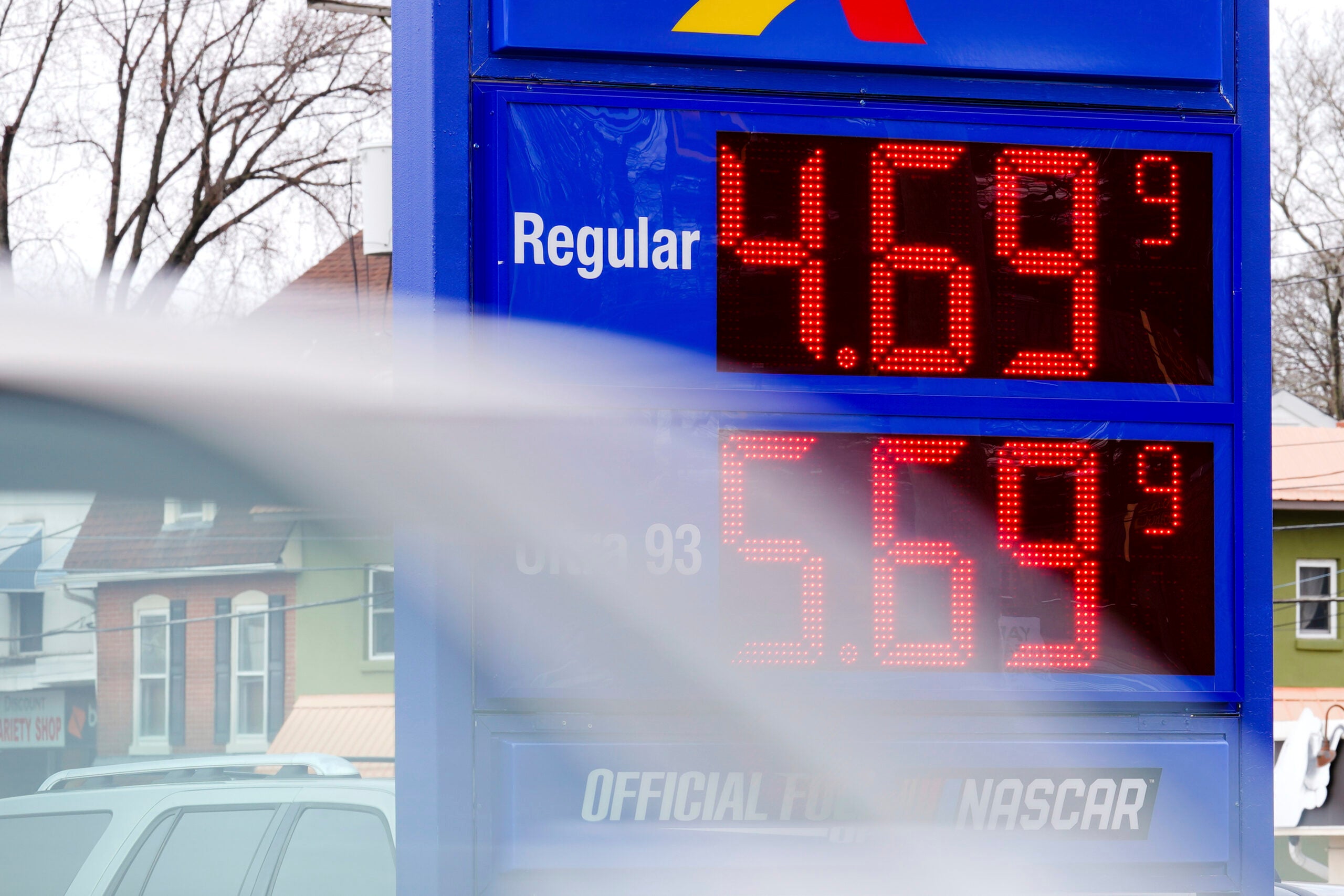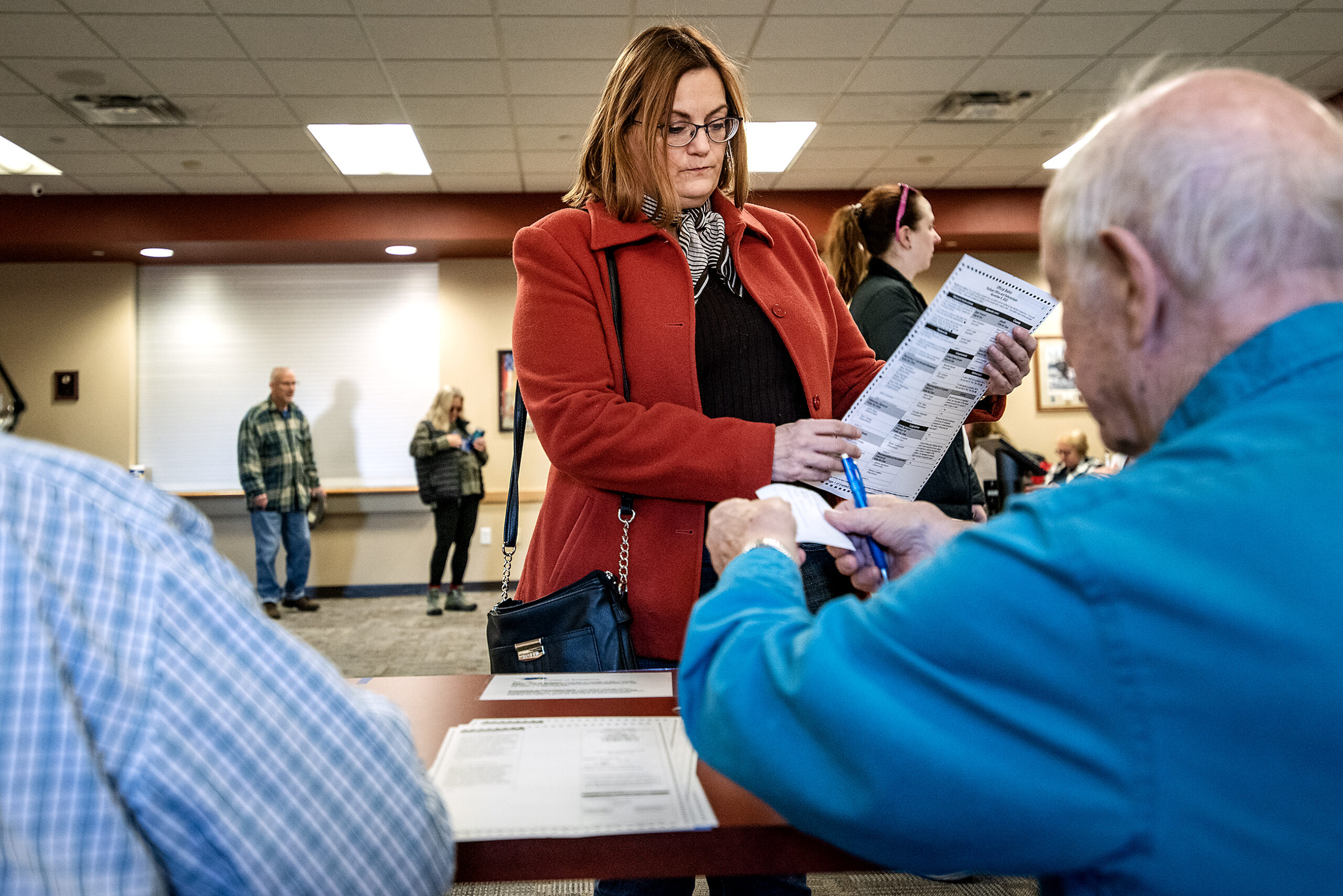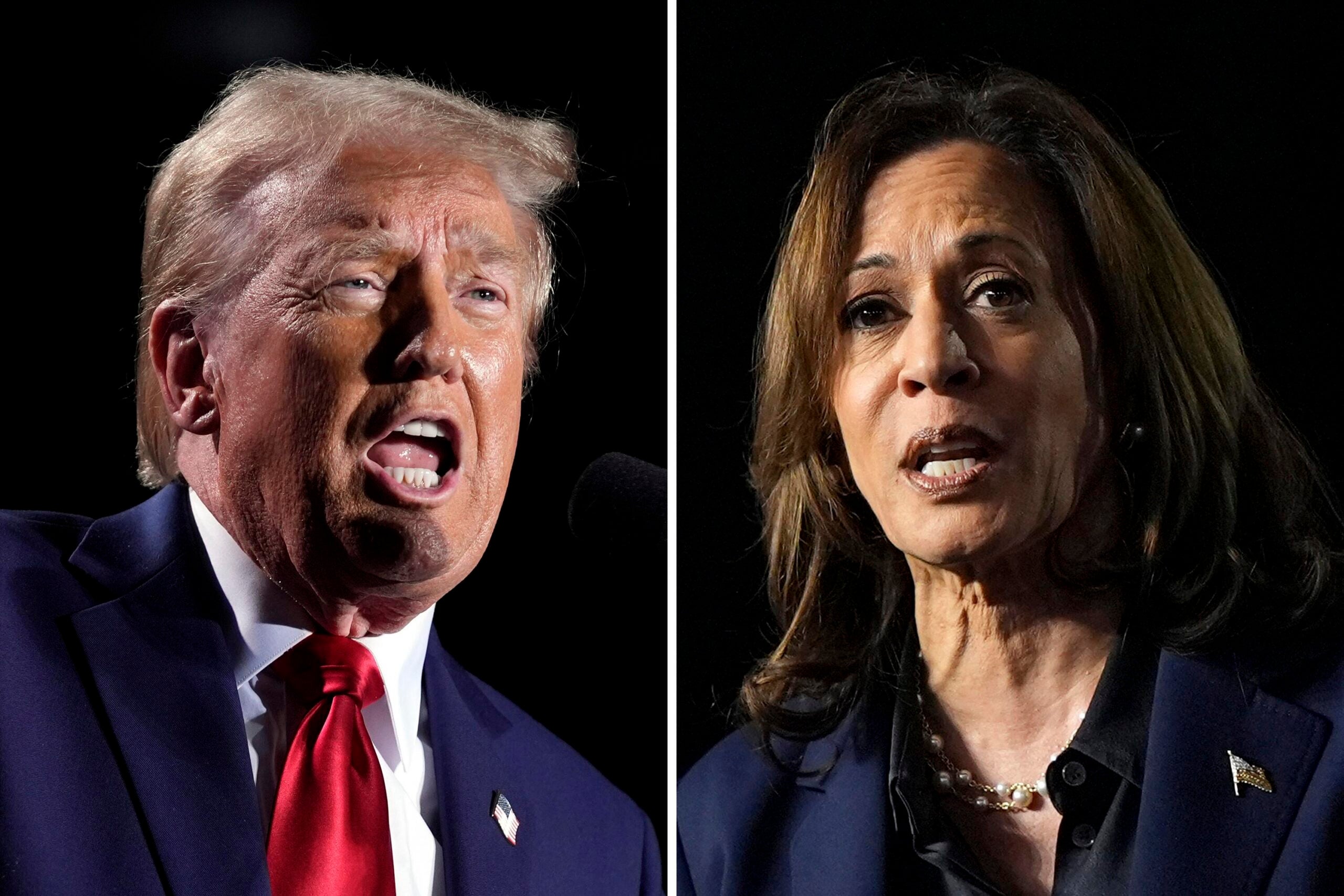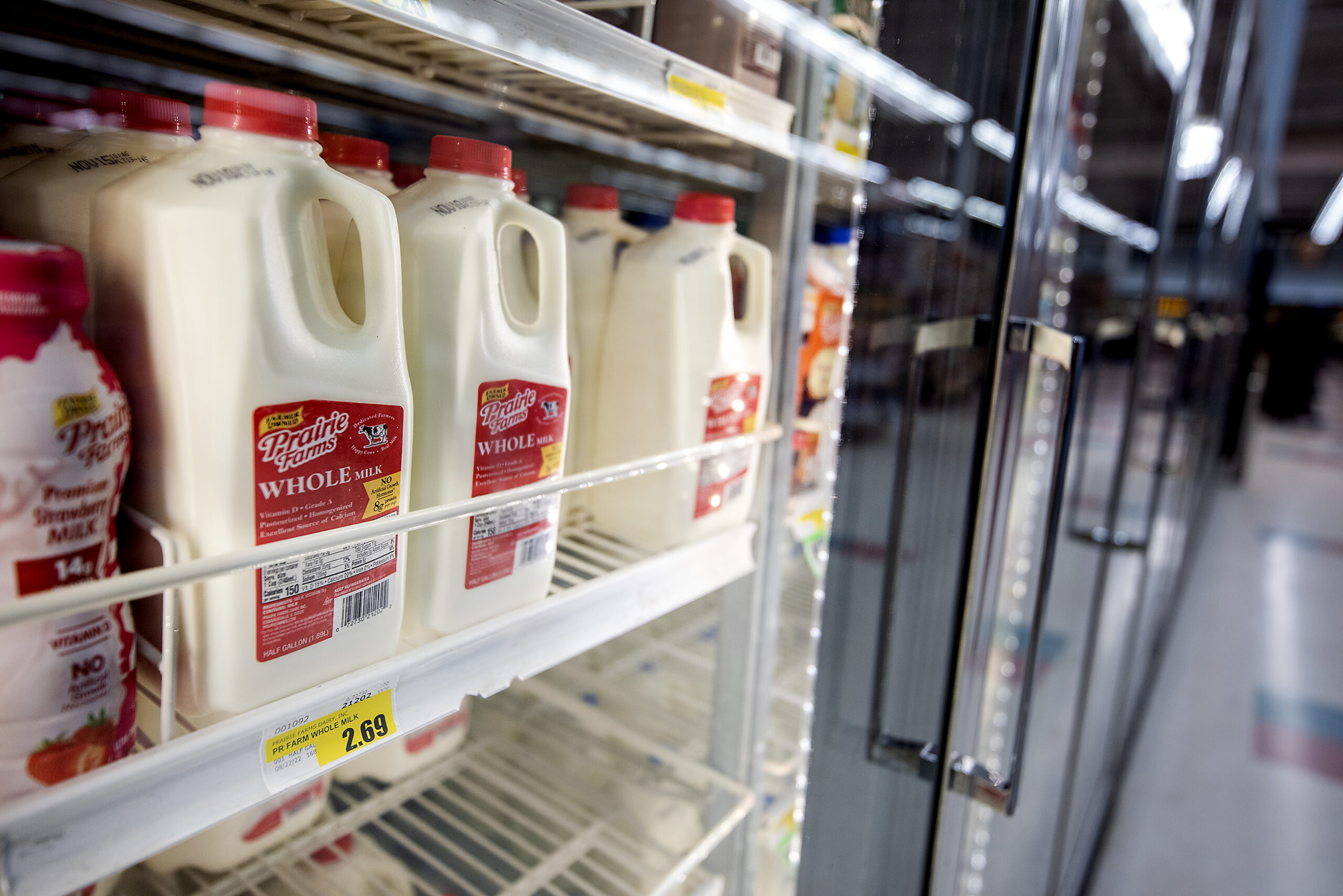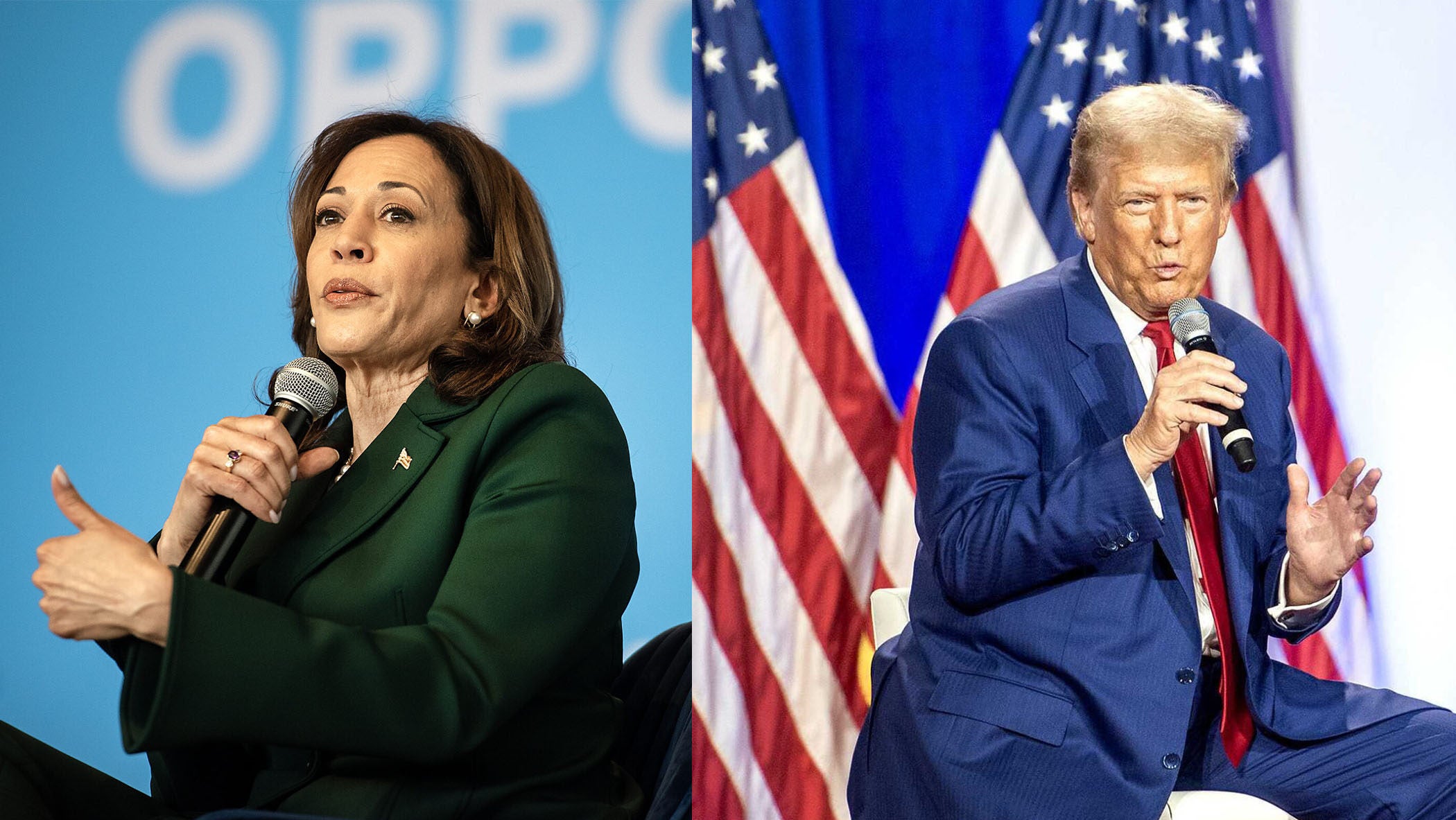The budgeting app Tracy Shilobrit uses to keep track of personal expenses has been sending notifications warning her about going over budget on things like gas and groceries.
“The grocery store still shocks me every time I check out when I see how expensive everything is,” said Shilobrit, of Waukesha.
Not surprisingly, 67 percent of Wisconsin residents say inflation is a very concerning issue in the state, new statewide polling has found.
Stay informed on the latest news
Sign up for WPR’s email newsletter.
While gas prices are going down from record-high levels in June, Wisconsinites are still worried about the effect inflation is having on their budgets, including higher prices at grocery stores.
Ozaukee County resident Janel Benedum said she and her husband have well-paying government jobs, but they have struggled with their budgets this year as the price of goods increased.
Benedum is also a caregiver for her parents and in-laws, but because her parents are on a fixed income, she has had to dip into her own funds to help them as costs have risen.
“We started to become short (on our budget) as we are trying to make sure that our families are receiving the care and basic necessities,” she said.
A majority of Wisconsin voters are very concerned with inflation
When prices began rising last year, the Marquette University Law School survey began asking residents about inflation. Its most recent poll, conducted from Aug. 10 through Aug. 15, surveyed 811 registered Wisconsin voters, where 67 percent said they were “very concerned” with inflation and only 4 percent were not too concerned or not at all concerned.
That’s down from June’s survey, where 75 percent of respondents said they were “very concerned” about inflation. Poll director Charles Franklin said the slight decline could be attributed to declining gas prices.
But worries of inflation have been rising over the last year, he said. Last August, the poll found less than half of voters said inflation was very concerning, while 14 percent said the issue wasn’t concerning.
In October, 64 percent of respondents said they were very concerned with inflation, with that number bumping up to 69 percent in April.
Inflation ranked as the top concern in Marquette’s most recent poll — ahead of abortion policy, gun violence, health care and the coronavirus.
While a majority of Wisconsin voters find inflation very concerning, Republicans are far more concerned with the issue than Democrats.
Ninety-one percent of Republicans find inflation very concerning, while only 53 percent of Democrats say the same.
The non-scientific survey the Ideas Lab has been conducting as part of its Main Street Agenda project has spotted a similar partisan breakdown, with Republicans far more likely to rank inflation and the state of the economy as their top concern heading into this fall’s midterm elections. The project is a collaboration between the USA TODAY NETWORK-Wisconsin, Wisconsin Public Radio and the La Follette School of Public Affairs at the University of Wisconsin-Madison.
State candidates want to cut taxes to ease inflation
With inflation on Wisconsinites’ minds, Franklin said the issue is likely to be at the top of candidates’ campaigns.
Ahead of the Aug. 9 primary, both Republican and Democratic candidates said inflation would be among their top priorities.
Senate candidates Lt. Gov. Mandela Barnes and U.S. Sen. Ron Johnson are both promising tax cuts in their campaign ads as a way to combat inflation.
Barnes is promising middle-class tax cuts, while Johnson claims his small business tax cuts will help ease inflation.
Republican candidate for governor Tim Michels wants to cut taxes in multiple areas, including corporate and income taxes and personal property taxes. Michels claims these tax cuts will help grow Wisconsin’s economy and keep residents in the state.
Inflation as a political tactic
Even as candidates use the issue of inflation to gather votes, Franklin said the issue will more likely be used as a way to attack other candidates.
“Inflation will be used to blame other candidates and parties, with not many actual solutions being given,” Franklin said.
Across the country, both Republicans and Democrats are spending millions on television ads this year mentioning inflation, according to political ad tracking by AdImpact.
In a campaign ad, Johnson claimed President Joe Biden and Democrats sparked inflation and caused “economic turmoil.”
Benedum said she follows local politics closely and she’s heard candidates talk about inflation but has yet to hear solutions.
“There’s been a lot of chatter about ‘this is wrong,’” Benedum said. “I haven’t yet heard concrete, laid-out plans of how we’re going to do this.”
Wisconsin Public Radio, © Copyright 2025, Board of Regents of the University of Wisconsin System and Wisconsin Educational Communications Board.
